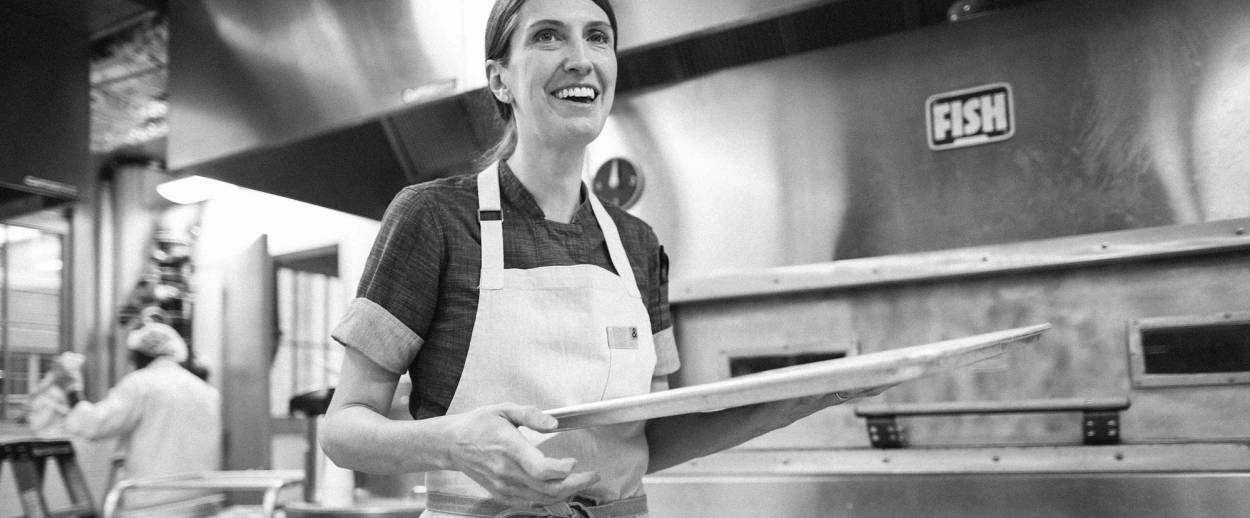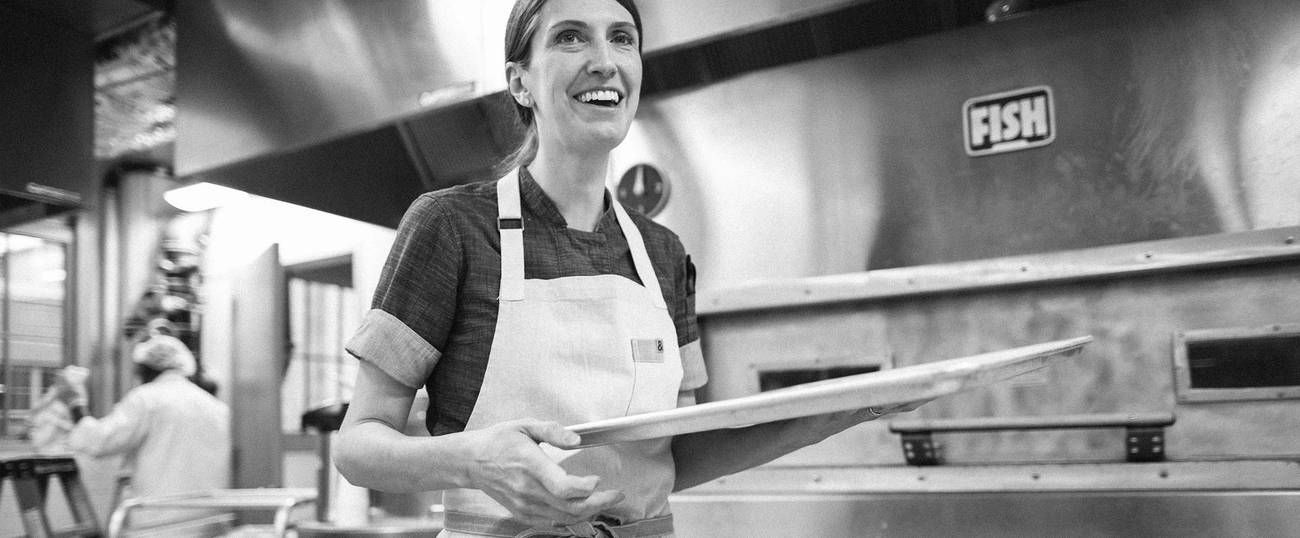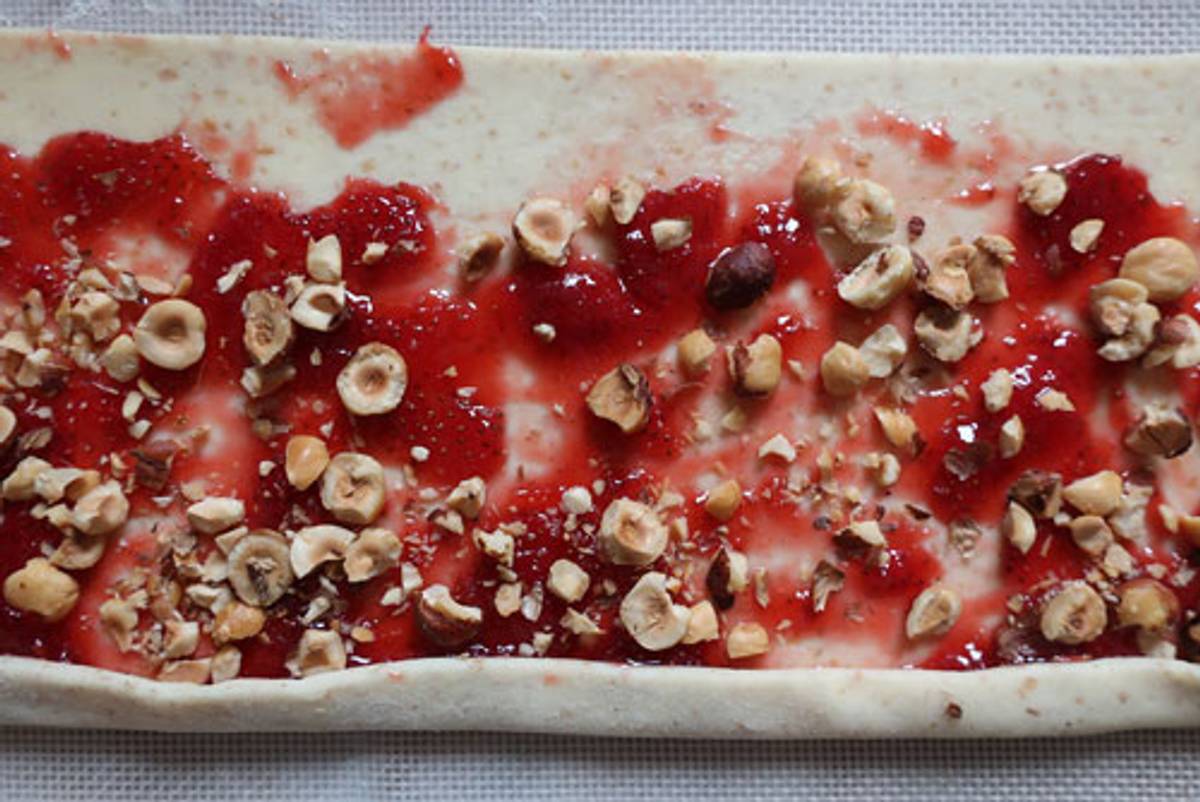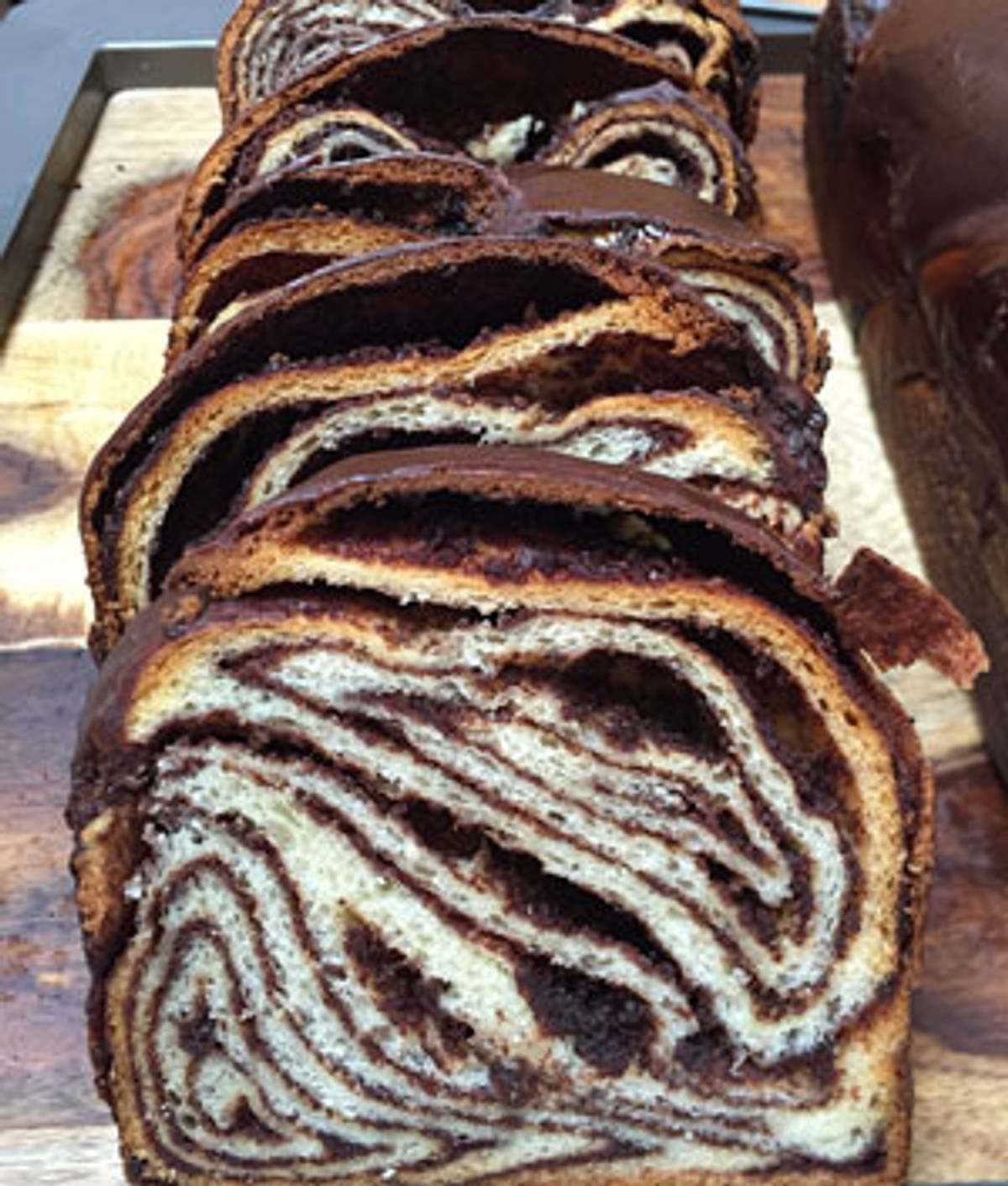America’s Best Jewish Baker Isn’t Jewish
How minister’s daughter Melissa Weller became the queen of bagels and babka




Judging by her Instagram feed, one would guess Melissa Weller is a nice Jewish baker and a nice Jewish girl. She dutifully posts appropriate pastries on appropriate days (“Happy New Year! #honeycake” reads one caption dated Sept. 21), and other Jewish baked goods on regular old days, just because. There are the burekas sprinkled with sesame seeds that she crafts for Walnut Street Café, a new restaurant in Philadelphia where Weller is the head baker. There are the bagels she made for a “Bagels and Babka” class she taught at the De Gustibus Cooking School in New York City. There are the close-ups of said babka, intricate cross sections with dark, hypnotic swirls. Keep scrolling for her six-braided sourdough challah, sufganiyot stuffed with blood-orange jelly, marbled rye bread, delicate cheese blintzes, and more, more, more.

Except Melissa Weller isn’t Jewish. Her father was a United Methodist minister who taught high school history. She grew up going to church every Sunday and saying grace before meals. So why Jewish baking? It seems Weller herself isn’t even certain. “I’ve always had this interest in history and culture, maybe that came from my dad,” said Weller. But it took her a while to find her calling. She had a knack for science and started her professional life as a chemical engineer at Air Products & Chemicals in Allentown, Pennsylvania, after graduating from college. “I hated it, it was so boring,” she said. “I just daydreamed on the job.” Her work brought her into contact with Yahoo and Excite search engines (it was the ’90s), and the newly minted food sites. “The whole time I was secretly printing out recipes.”
After a mentor advised her to do what she loved, Weller eventually moved to Manhattan in 2003 to attend the French Culinary Institute, and went on to work in some of the city’s most prestigious pastry kitchens: with the late Gina DePalma at Babbo, and heading the baking programs at Per Se and Roberta’s. It was around this time that she started to experiment with bagels. Though Weller didn’t grow up with them, she took to them quickly. “I grew up eating hard sourdough pretzels, which is the closest thing that came to a bagel,” said Weller. “I think that’s why I like bagels. They’re chewy. And there’s something about the flavors I really like that seems related to Ashkenazi baking. I like the heartiness of rye and anything with sautéed onions.”
Once the idea took hold, Weller embarked on the task of restoring honor to the beloved yet much-maligned New York staple, which many complain has become bloated and insipid, a mockery of its former self. “I bought as many books as I could to learn about bagels,” said Weller, who devoured Mimi Sheraton’s The Bialy Hunter, Mark Russ Federman’s Russ & Daughters memoir, and others. After much kneading, boiling and baking, she started to sell her fermented, slow-risen rounds—along with homemade cultured cream cheese and cured salmon—out of a stall at Smorgasburg, a Brooklyn food bazaar, in 2013. Upon tasting one of Weller’s bagels, food writer Tejal Rao wrote that “it altered my definition of the perfect bagel.”
That seems to be Weller’s secret superpower. She might not have grown up with bagels, or other Jewish foods, for that matter, but she can detect the inherent goodness in a subpar pastry or bread and rehabilitate it, coaxing it to be its best self without losing its essence. It may be an advantage that she comes to it with a clean slate. Weller doesn’t have nostalgia getting in her way, clouding her better judgment with attachments to Mom’s rugelach, or her grandmother’s honey cake, or Hebrew school hamantaschen. Conversely, she hasn’t grown up with such terrible versions of Jewish pastries that they block any notion of improvement. (How many times have you heard someone say, “I thought babka was supposed to be dry?”) Weller’s own version of the chocolate-veined loaf has all the hallmarks of the babka we know—bready, faintly chocolatey, not too sweet—yet demonstrates how elegant Jewish yeasted pastry can be. Think of her baking as a corrective experience for anyone who’s only eaten bad Jewish desserts. (Which is most people.)

It was at Smorgasburg that Weller caught the attention of the owners of Major Food Group, the restaurateurs with whom she would create Sadelle’s, the buzzy downtown appetizing shop-bakery-restaurant hybrid where Weller eventually cemented her reputation as a Jewish-food maven. “They said they were the best bagels they ever had,” said Weller. As the partnership developed, Weller dived deeper into researching Jewish baked goods. She went to Wall’s Bake Shop on Long Island and became acquainted with onion boards. She tore into loaf after loaf of babka. “I tried the cinnamon babka at Russ & Daughters and thought, I want to do this my own way and express my skills as a baker,” she said. Despite the food world’s obsession with cultural appropriation, Weller’s embrace of the Jewish bakery hasn’t caused an uproar. In fact, it’s been a reason for celebration. After Sadelle’s finally opened in 2015, The New York Times food critic Pete Wells wrote in his review that Weller’s baking, which included braided Danish pastries, black-and-white cookies, and other old-school delights, outshined the rest of the menu. “Her bagels are palm size, rolled by hand, slowly risen for flavor, boiled and well baked to a chewy crackle,” he wrote. “All the varieties are worthwhile.”
Since last spring, Weller has been developing recipes for a forthcoming home-baking book to be published by Knopf in 2019. She’s spent the better part of the year figuring out how to make many of the recipes that she nailed in restaurant kitchens—including challah, babka, and those black-and-white cookies—at home.
She invited me to her Williamsburg apartment to watch while she tinkered with her rugelach recipe. Weller greeted me at the door. She is tall and slender, but strong, with long ginger hair tied in a bun at the nape of her neck, and eyes that are a clear blue. She wore a hipster uniform of jeans, a black tank, and white Birkenstocks. She has a soft stoicism about her, like a Brooklyn-dwelling answer to American Gothic.
Inside her one-bedroom apartment, the family pugs Ruby and Frances darted around Weller’s ankles while she weighed butter and cream cheese, then cut them into chunks. “There’s twice as much fat as there is flour,” she said of the recipe. Like many of her Jewish pastries, Weller’s rugelach is finely honed, a better, “more-ish” version of what you might have tasted before. She gives the dough a quick lamination, which makes for a puffier, flakier cookie, and will fill it with toasted hazelnuts and a jam she made from Tri-Star berries (she also uses Bon Maman). The goal? “I want it to be crispy, have flakiness, not be completely dried out, have moisture and a balance of salt and sugar.” You know, no big deal.
Like a true balaboosta, Weller makes the process of making the dough, chilling it, rolling it out, filling it, forming small roulades, chilling them, slicing them, and baking them into flaky cookies appear simple. Of course, it’s not. And of course, they’re delicious. (Recipe here.) “I try to be really authentic,” said Weller. “It created a really heartfelt emotion for me that I was making things that resonated with people. I was making a good version of things that maybe they hadn’t had before, or had a long time ago. There’s a joy when you’re cooking or baking for somebody. I think food is always attached to memories.”
***
Like this article? Sign up for our Daily Digest to get Tablet Magazine’s new content in your inbox each morning.
Gabriella Gershenson is a food writer and editor based in New York City. Find her on Instagram and Twitter @gabiwrites.
Gabriella Gershenson is a food writer and editor based in New York City. Find her on Instagram and Twitter @gabiwrites.